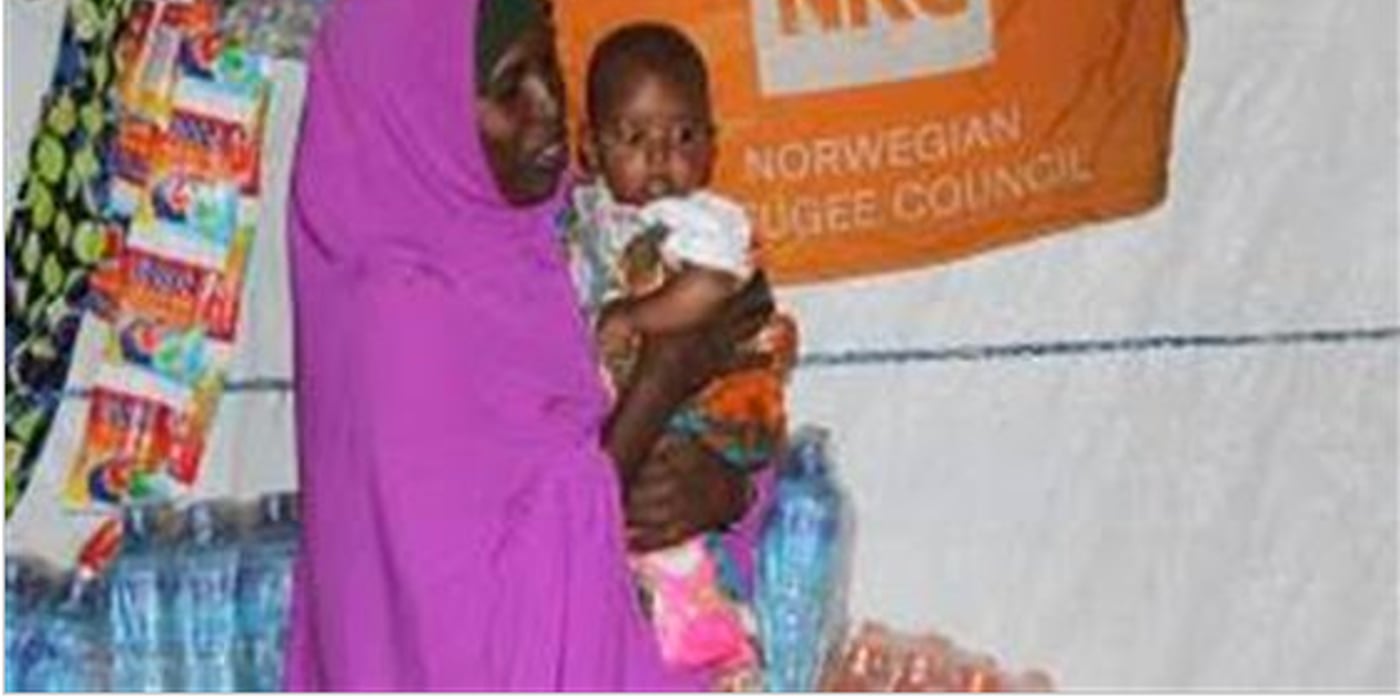
“Being selected to receive the basic business management trainings and the subsequent start-up cash has meant a lot to me. It enabled me to generate income and improve the food consumption of my family’’, says Ardo Mohamed.
25 years of age, she is the mother of four. In 2010, she fled with her family from Mina district of Oromia to the Qubi district. Since then, she has lived in the Nogob zone of the Somali region as an internally displaced person (IDP).
Through the 2010 Norwegian Broadcasting Telethon funds, NRC has been able to deliver training of basic business management skills to nine business groups, consisting of 92 households. Of these, 75 were female-headed. NRC supported their business start-up with between 30,000 to 50,000 ETB (equivalent to 1,500 – 2,500 USD). An additional 100 households were trained on improved agronomic practices, and provided agricultural support such as farm hand tools, water pumps and improved seeds.
Ardo Mohamed is a member of one of these nine business groups. When asked what the trainings and cash support has given to her, she says:
“I have thoroughly learned the principles of basic business management skills, such as business ethics and qualities, how the local market works, how to understand the cost of my business, how to set the price of my business product, and marketing skills. This knowledge has really helped me to run my business smoothly”.
NRC established its first operational office in Jigjiga, the capital of Somali Regional State, in June 2014. This was in order to provide immediate and integrated life‐saving assistance to the displacement-affected communities. Main objectives are to reduce mortality, and to prevent further displacement in Qubi and Mayomuluko districts of the Nogob zone – an area that is very remote and arid.
In Nogob, the first NRC intervention was food security and livelihood projects, including livestock distribution, income-generating activities and community gardening. The host community, and particularly pastoralists in Qubi district, continue to appreciate the establishment of the small business enterprises, as this enables them to access basic goods and food items in their vicinities. Previously, they were forced to travel long distances to stock from their neighbouring Oromia markets. The action has also empowered the local market and those involved in livestock marketing, allowing the pastoralists to get fair and decent prices for their livestock.
It is still too early to expect profits from the investments made by these business groups, mainly due to the short time passed since the cash injection and the project start. However, a rapid follow-up assessment conducted by NRC, revealed it is evident the businesses are getting momentum. Even over the past 3 months, while the district has been hit by a severe drought altering the market and its customers, businesses seem to go well.
The business training has brought a positive change to Ardo’s entire family, and she explains that the impact of this intervention has enabled her to provide for her family.
“The support from NRC has indeed opened the door to self-reliance for marginalised IDPs in general - and my family in particular,” she says.

